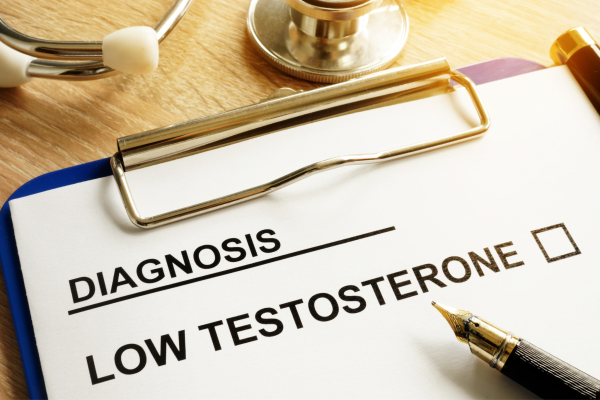In the realm of men’s health, few topics hold as much significance as testosterone and bone density. Understanding the intricate relationship between these two factors is crucial for maintaining optimal bone strength and overall well-being.
- Understanding Testosterone
- Importance of Bone DensityDefinition of Bone Density
- Link Between Testosterone and Bones
- Factors Influencing Bone Health
- Effects of Testosterone Therapy
- Exercise and Bone Strength
- Nutrition and Bone Health
- Lifestyle Modifications
- Medical Interventions
- Prevention StrategiesImportance of Early Detection and Prevention
- FAQs: Testosterone and Bone Health
- Question: Can low testosterone affect bone density?
- Question: How does testosterone contribute to bone health?
- Question: Can testosterone therapy improve bone density?
- Question: Are there any risks associated with testosterone therapy for bone health?
- Question: How long does it take to see improvements in bone density with testosterone therapy?
- Question: Can lifestyle changes alone improve bone density?
- Conclusion
Understanding Testosterone
What is Testosterone?
Testosterone, a hormone primarily produced in the testicles, serves as a fundamental player in male health. Let’s explore its multifaceted role:
Reproductive Tissues and Characteristics:
-
- Testosterone is pivotal for the development of male reproductive tissues such as the testes and prostate.
- It contributes to the formation of secondary sexual characteristics, including facial hair, deep voice, and muscle growth.
Role of Testosterone in Male Health
Beyond its role in reproductive function, testosterone plays a crucial role in regulating muscle mass, bone density, and fat distribution in men.
Beyond Masculinity: Exploring the Diverse Functions of Testosterone
Importance of Bone DensityDefinition of Bone Density
Bone density refers to the amount of mineral matter per square centimeter of bone. It is a key indicator of bone strength and resilience.
Significance of Bone Density for Male Bone Strength
Maintaining optimal bone density is essential for preventing fractures and osteoporosis, particularly in men, who tend to have larger and denser bones compared to women.
Link Between Testosterone and Bones
How Testosterone Affects Bone Density
Testosterone stimulates bone formation and inhibits bone resorption, leading to increased bone density and strength.Research Insights: Connection Between Testosterone and Bone Strength
Numerous studies have shown a positive correlation between testosterone levels and bone mineral density, highlighting the importance of adequate testosterone for bone health.
- Testosterone and BMD:
- Androgen-deficient men are at higher risk of osteoporosis.
- Intramuscular testosterone moderately increases lumbar bone density in men.
- Transdermal testosterone has no significant impact on BMD.
- Femoral neck bone density results are inconclusive.
- Testosterone administration inhibits bone resorption and maintains bone mass.
- Younger hypogonadal males should be treated with testosterone to increase BMD.
- Clinical Implications:
- Testosterone replacement therapy (TRT) helps manage hypogonadal symptoms.
- Beneficial effects of TRT on BMD are observed in hypogonadal men with osteopenia and osteoporosis.
- However, no direct evidence supports TRT’s ability to prevent bone fractures.
While TRT improves BMD, its impact on fracture prevention remains uncertain. Clinicians should consider TRT as part of a comprehensive approach to managing hypogonadal symptoms and bone health in men.
Factors Influencing Bone Health
Age and Testosterone Levels
As men age, their testosterone levels naturally decline. This decrease in testosterone can lead to reduced bone density and an increased vulnerability to fractures. It’s essential for older men to be aware of this connection and take steps to maintain bone health through proper nutrition, exercise, and medical guidance.
The Truth About Testosterone and Aging: What You Need to Know
Lifestyle Factors Impacting Bone Density
Several lifestyle factors significantly affect bone health and testosterone levels:
- Physical Activity: Regular exercise, especially weight-bearing activities, promotes bone strength.
- Nutrition: Proper dietary choices, including adequate calcium and vitamin D intake, play a crucial role in maintaining optimal bone density.
- Smoking: Smoking negatively impacts bone health.
- Alcohol Consumption: Excessive alcohol intake can harm bone density.
Nutritional Considerations for Bone Health
To maintain strong bones:
- Consume Adequate Calcium: Dairy products, leafy greens, and fortified foods are good sources.
- Get Enough Vitamin D: Sun exposure and dietary supplements help.
- Include Other Essential Nutrients: Magnesium, phosphorus, and vitamin K contribute to bone strength.
Remember, a holistic approach that combines lifestyle modifications and proper nutrition is essential for maintaining healthy bones!
Effects of Testosterone Therapy
Testosterone Replacement Therapy (TRT)
- Purpose: TRT is commonly prescribed to men with low testosterone levels. Its goal is to restore hormonal balance and improve bone density.
- Benefit: TRT can effectively increase bone density and promote muscle mass.
Potential Risks and Benefits of Testosterone Therapy
- Benefits:
- Improved Bone Density: TRT contributes to stronger bones.
- Enhanced Muscle Mass: It helps build and maintain muscle.
- Risks:
- Fluid Retention: Some individuals may experience fluid retention.
- Acne: Skin issues like acne can occur.
- Cardiovascular Concerns: TRT may carry risks related to cardiovascular health.
As with any medical treatment, it’s essential to weigh the benefits against potential risks. Consult with a healthcare professional to determine the best approach for your specific situation.
Exercise and Bone Strength
Let’s explore the role of exercise in maintaining bone density and the types of exercises beneficial for bone health:
Role of Exercise in Maintaining Bone Density
- Weight-Bearing Exercises: These activities put stress on your bones and stimulate bone formation. Examples include walking, running, hiking, and dancing.
- Resistance Training: Strength training with weights or resistance bands helps build muscle and maintain bone density.
- High-Impact Activities: Jumping, skipping, and plyometric exercises can enhance bone strength.
Types of Exercises Beneficial for Bone Health
- Walking: A simple yet effective weight-bearing exercise that supports bone health.
- Jogging: Higher impact than walking, jogging helps maintain bone density.
- Weightlifting: Strength training with weights or machines targets bones and muscles.
- Yoga: While not high-impact, yoga improves balance, flexibility, and overall well-being.
Remember, a combination of weight-bearing, resistance, and high-impact exercises contributes to strong bones. Consult with a fitness professional to tailor an exercise plan that suits your needs!
Nutrition and Bone Health
Let’s delve into the importance of nutrients for bone strength and dietary recommendations to enhance bone health:Importance of Nutrients for Bone Strength
- Calcium: Vital for bone structure and strength. Dairy products (milk, yogurt, cheese), leafy greens (kale, spinach), and fortified foods are excellent sources.
- Vitamin D: Facilitates calcium absorption. Sun exposure and vitamin D-fortified foods (salmon, eggs, fortified cereals) are essential.
- Magnesium: Supports bone health and metabolism. Nuts (almonds, cashews), whole grains, and legumes provide magnesium.
- Protein: Necessary for bone formation. Include lean meats, fish, poultry, beans, and tofu in your diet.
Dietary Recommendations for Enhancing Bone Health
- Balanced Diet: Consume a variety of foods to ensure adequate nutrient intake.
- Dairy Products: Opt for low-fat or non-fat versions of milk, yogurt, and cheese.
- Leafy Greens: Incorporate spinach, kale, and collard greens.
- Nuts: Almonds, walnuts, and seeds (chia, flaxseed) are beneficial.
- Fortified Foods: Look for cereals, plant-based milk, and orange juice fortified with calcium and vitamin D.
Remember, a well-rounded diet plays a crucial role in maintaining strong bones and preventing bone loss!
Lifestyle Modifications
Let’s discuss strategies for optimal bone health maintenance and the impact of smoking and alcohol on bone density:
Strategies for Optimal Bone Health Maintenance
- Healthy Weight: Maintaining an appropriate weight is essential for bone health. Excess weight can strain bones, while being underweight may lead to bone loss.
- Regular Exercise: Engage in weight-bearing exercises (like walking, jogging, or dancing) and resistance training to strengthen bones.
- Balanced Diet: Consume foods rich in calcium, vitamin D, and other essential nutrients.
- Avoid Smoking and Excessive Alcohol: These habits can weaken bones and increase fracture risk.
Impact of Smoking and Alcohol on Bone Density
- Smoking: Smoking negatively affects bone health by reducing blood flow to bones and impairing bone formation.
- Alcohol Intake: Excessive alcohol consumption interferes with calcium absorption and disrupts bone remodeling.
Remember, adopting a healthy lifestyle and avoiding harmful habits contribute significantly to maintaining strong bones!
Medical Interventions
Let’s explore the various hormonal treatments and surgical options for bone health:
Hormonal Treatments for Bone Health
- Bisphosphonates: These medications help prevent bone loss by inhibiting bone resorption. They are commonly prescribed to improve bone density and reduce fracture risk.
- Parathyroid Hormone (PTH): PTH is an anabolic hormone that stimulates bone formation. It can be administered as a treatment for severe osteoporosis.
Surgical Options for Severe Bone Density Issues
- Bone Grafts: In cases of significant bone loss or fractures, bone grafts involve transplanting healthy bone tissue to the affected area. This promotes healing and restores bone strength.
- Joint Replacements: For severe joint damage due to osteoarthritis or other conditions, joint replacement surgeries (such as hip or knee replacements) can improve mobility and alleviate pain.
Remember, individualized treatment plans should be discussed with a healthcare provider based on the severity of bone health issues and overall health.
Prevention StrategiesImportance of Early Detection and Prevention
Detecting bone density issues early is crucial for preventing fractures and complications related to osteoporosis. Regular screenings allow timely intervention and better management of bone health.
Screening Guidelines for Bone Health
Men over the age of 50, especially those with risk factors like low testosterone levels or a family history of osteoporosis, should undergo bone density testing. This assessment helps evaluate their risk and enables preventive measures to maintain optimal bone health.
“`html
FAQs: Testosterone and Bone Health
Question: Can low testosterone affect bone density?
Yes, low testosterone levels have been linked to decreased bone density, increasing the risk of fractures and osteoporosis.
Question: How does testosterone contribute to bone health?
Testosterone plays a vital role in stimulating bone formation and maintaining bone density, which are essential for strong and healthy bones.
Question: Can testosterone therapy improve bone density?
Yes, testosterone therapy has been shown to increase bone density in men with low testosterone levels, reducing the risk of fractures and osteoporosis.
Question: Are there any risks associated with testosterone therapy for bone health?
While testosterone therapy can improve bone density, it may also carry risks such as fluid retention, acne, and cardiovascular issues. It’s essential to discuss potential risks and benefits with a healthcare provider.
Question: How long does it take to see improvements in bone density with testosterone therapy?
The timeline for seeing improvements in bone density with testosterone therapy can vary depending on individual factors such as age, overall health, and treatment regimen. However, some studies have shown significant improvements within six to twelve months of starting therapy.
Question: Can lifestyle changes alone improve bone density?
While lifestyle changes such as regular exercise and a balanced diet can contribute to overall bone health, they may not be sufficient to significantly increase bone density in individuals with low testosterone levels. In such cases, testosterone therapy may be necessary to achieve significant improvements.
Conclusion
Recap of Key Points
Understanding the relationship between testosterone and bone density is crucial for maintaining optimal bone health and preventing fractures and osteoporosis.
Empowering Readers to Take Control of Their Bone Health
By adopting healthy lifestyle habits, seeking medical guidance when necessary, and staying informed about bone health, men can take proactive steps to preserve their bone strength and overall well-being.
Would you like to learn more about optimizing your bone health? Let’s embark on this journey together towards stronger, healthier bones!
Testosterone Overdrive: Recognizing the Signs of High Testosterone in a Man
Does testosterone cause hair loss: Understanding Androgenic Alopecia





